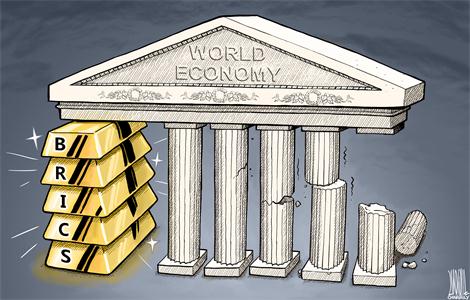Europeans refused to give Greece an extension. It looks pretty dire. Tsipras's attempt to play the Russia and Chinese cards went over with a dull thud. Tsipras's latest stunt, the call for a referendum on July 5, was the straw that broke the camel's back. Europe wasn't impressed with Greek threats and as a result Greece has now been excluded from the Eurogroup of finance ministers. Can the European Central Bank (ECB) be far behind?
It sounds like a full-scale run on Greek banks is now in process. Greeks are waiting in long lines to withdraw their money and ATMs are running out of cash. The question now is will Greek banks be able to open on Monday? And as I wrote previously, I don't think Greek leaders have a Plan B. So if they plan to exit the Euro and if the European Central Bank cuts them off, they had better get one real quick. Greece will need to implement capital controls in order to keep its banks open.
http://www.reuters.com/article/2015/06/27/us-eurozone-greece-idUSKBN0P40EO20150627
http://www.wsj.com/articles/greeks-...m-announcement-1435410126?mod=trending_now_10
http://www.nbcnews.com/news/world/g...form-atms-pm-seeks-referendum-bailout-n383006
http://uk.reuters.com/article/2015/06/27/uk-eurozone-greece-idUKKBN0P40FR20150627
It sounds like a full-scale run on Greek banks is now in process. Greeks are waiting in long lines to withdraw their money and ATMs are running out of cash. The question now is will Greek banks be able to open on Monday? And as I wrote previously, I don't think Greek leaders have a Plan B. So if they plan to exit the Euro and if the European Central Bank cuts them off, they had better get one real quick. Greece will need to implement capital controls in order to keep its banks open.
http://www.reuters.com/article/2015/06/27/us-eurozone-greece-idUSKBN0P40EO20150627
http://www.wsj.com/articles/greeks-...m-announcement-1435410126?mod=trending_now_10
http://www.nbcnews.com/news/world/g...form-atms-pm-seeks-referendum-bailout-n383006
http://uk.reuters.com/article/2015/06/27/uk-eurozone-greece-idUKKBN0P40FR20150627
Last edited:

